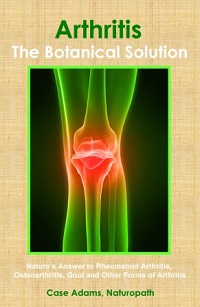Dangerous Drug-Resistant Bacteria Spreading Internationally
International doctors and hospitals are facing a growing infectious disease situation in the form of bacteria that are resistant to antibiotics. Two prime examples are beta-lactamase positive (ESBL+) Escherichia coli and Klebsiella pneumoniae.
In this article
What are these bacteria?
These multidrug-resistant bacteria have been found increasingly among intestinal, urinary and lung infections. While the assumption to date has been that it is strictly a hospital- and community-acquired infection, new research is unfolding the possibility that food and water are also vectors for the transmission of these antibiotic-resistant infections.
Researchers from Berlin’s Charité University School of Medicine (Leistner et al. 2013) have determined that eating pork is linked to the worldwide increase in extended-spectrum beta-lactamase positive (ESBL+) Escherichia coli. This multidrug-resistant bacteria can cause severe infections, and it has been seen growing among communities.
The researchers sought to determine if there was a dietary relationship with the increase in ESBL+ infections among certain communities.
The researchers studied 85 cases of ESBL-producing E. coli infections together with 170 control patients. All of the patients were admitted to the Charité University Hospital between May of 2011 and January of 2012.
The researchers examined the households, diets, travel and native language of the patients to see if there were any associations between these and their infections.
The researchers determined that eating pork more than three times a week increased the risk of acquiring the ESBL-producing E. coli infection by more than three and a half times. In their conclusion they stated that:
“frequently consuming certain types of meat like pork can be independently associated with the colonization of ESBL-positive bacteria.”
Certain countries have higher rates of ESBL E. coli infections
Those who had traveled to Asia or those whose native tongue was Chinese were also more likely to be infected with the ESBL-positive E. coli.
Other studies have shown that travelers returning from Asia are at a greater risk of being infected with ESBL-positive E-coli. A Swedish study illustrated this, as did a study from the UK—which showed a higher prevalence among those from Asian and Middle Eastern countries.
Swiss researchers (Hawser et al. 2013) studied the ESBL-positive rates among abdominal infections among Asian countries, including China, India and Thailand. They found that ESBL-positive infection rates in India ranged from 79-100%, China averaged 55% and Thailand was 51%.
Another recent study, this one from Beijing’s National Institutes for Food and Drug Control, tested retail chicken and ground pork from four Chinese provinces. They found that 32% of the retail meat samples contained multidrug resistant E-coli—apparently these are ESBL-positive as they tested positive for beta-lactamase genes.
Meanwhile, research published by the Centers of Disease Control has found ESBL-producing E. coli and related pathogens have been found among the portable water bags that are used to transport water in poor areas of Africa.
In this study 101 water bags from different street vendors and 68 different brands were purchased and tested. Almost a third of the bags tested positive for Enterobacteriaceae, and 5.3% tested positive for ESBL-producing bacteria.
ESBL+ bacteria showing up among more infections
Researchers and clinicians are increasingly finding ESBL-producing bacteria behind many different antibiotic-resistant infections, including urinary tract infections, intestinal infections, appendicitis, lung infections and more.
For example, Spanish researchers found last year that among 400 samples of urinary tract infections, over 25% (101) were infected with ESBL-producing E. coli. The researchers looked back at previous studies and found a 2009 study was 6% ESBL-+ E. coli and 7% in 2010.
The Spanish researchers also found that those infected with ESBL-producing E. coli were more likely to have spent time in a hospital and were more likely to be elderly. This study did not test diets.
In a recent study from India’s Mahatma Gandhi Medical College, researchers found that among those infected with ventilator-associated pneumonia – often found among those who have received ventilators in the hospital – 40% of Klebsiella pneumoniae infections were ESBL-producing, and thus multi-drug resistant.
REFERENCES:
Leistner R, Meyer E, Gastmeier P, Pfeifer Y, Eller C, Dem P, Schwab F. Risk Factors Associated with the Community-Acquired Colonization of Extended-Spectrum Beta-Lactamase (ESBL) Positive Escherichia Coli. An Exploratory Case-Control Study. PLoS One. 2013 Sep 11;8(9):e74323. doi: 10.1371/journal.pone.0074323.
Hawser SP, Bouchillon SK, Hoban DJ, Badal RE, Hsueh PR, Paterson DL. Emergence of high levels of extended-spectrum-beta-lactamase-producing gram-negative bacilli in the Asia-Pacific region: data from the Study for Monitoring Antimicrobial Resistance Trends (SMART) program, 2007. Antimicrob Agents Chemother. 2009 Aug;53(8):3280-4. doi: 10.1128/AAC.00426-09.
Briongos-Figuero LS, Gómez-Traveso T, Bachiller-Luque P, Domínguez-Gil González M, Gómez-Nieto A, Palacios-Martín T, González-Sagrado M, Dueñas-Laita A, Pérez-Castrillón JL. Epidemiology, risk factors and comorbidity for urinary tract infections caused by extended-spectrum beta-lactamase (ESBL)-producing enterobacteria. Int J Clin Pract. 2012 Sep;66(9):891-6. doi: 10.1111/j.1742-1241.2012.02991.x.
Xu X, Cui S, Zhang F, Luo Y, Gu Y, Yang B, Li F, Chen Q, Zhou G, Wang Y, Pang L, Lin L. Prevalence and Characterization of Cefotaxime and Ciproflox-acin Co-Resistant Escherichia coli Isolates in Retail Chicken Carcasses and Ground Pork, China. Microb Drug Resist. 2013 Aug 17.
De Boeck H, Miwanda B, Lunguya-Metila O, Muyembe-Tamfum JJ, Stobberingh E, Glupczynski Y, Jacobs J. ESBL-positive Enterobacteria isolates in drinking water. Emerg Infect Dis. 2012 Jun;18(6):1019-20. doi: 10.3201/eid1806.111214.



















